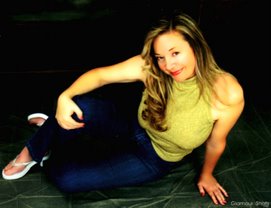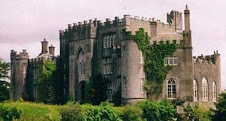Every year before
June rolls around our country holds statewide spelling contests with Semantics
students in every participating city in the U.S. I found out that this was the
79th year of Colorado’s
participation in the competition. A regional competition was held at D.U.s
Sturm Hall back on March 16th. Only the best spellers of these state
contests make it through the preliminaries to compete in Washington, D.C.
each year so those who made it to the 94th annual National Spelling
Bee (567 in all) are quite adept in perfect spelling. Four of ours were Maria
Ciobanu, Bryson Browning, Cameron Keith from Boulder
and Lauren Guo from Arvada.
The last two are from suburban Denver and they
made it to Washington, D.C. but were eliminated after passing the
first round.
I’m sure many
people think of spelling contests as a superfluous or even superficial
intellectual competition and that their time could be better spent but I
totally disagree with that opinion, however much it may prevail. Let’s just say
that I happen to believe that anyone who understands the importance of great
spelling will transfer that love of perfection and conscientious work to their
lives in the future.
To expound on
this, great spelling could be eventually transferred to the quest to find a
cure for all cancer, and comprehensive
programs for gun control, eliminating world hunger and disease prevention. My
vision is not grandiose but it is
full of hope and possibilities- which are endless. So I feel that the Bee
deserves our rapt attention and support.
On the morning of
Thursday, May 30th almost all of a total twenty rounds had came down
to the remaining sixteen 12 to 14 year old kids. The Scripps-Howard Bee is a
competition which employs extremely obscure or even foreign language words which
have been adopted into the American English language. Some of our idiomatic
spellings of English words trip up the average speller in the U.S. so the
difficulties are often profound. Our National Spelling competition is open
internationally so this year it started with 11 million applicants! Many of the
top spellers come from families in which it is possible that English may not be
their primary language but it appears that this is not an inhibiting factor to
their scholarship. This was the case for last year’s sole winner of the Bee,
Karthik Nemmani.
Having been a
Semantics student myself at a time when this course was taken for a period of two
years (four semesters) at Junior High level (now Middle School and the Freshman
year of High School). I have been a fan of watching these bees for the sheer
enjoyment of it, believe it or not. When I was that age and studying the
origins of words along with the rest of the Semantics students, we culled our
subject directly from the current dictionaries published at the time. I was
discouraged away from using the Funk and Wagnall’s and American Heritage
Dictionary by my instructor but still prefer them to this day. However, we were encouraged to own as many different
types of dictionaries as possible. Availability, especially foreign language
dictionaries, was limited. Internet access has made many foreign languages much
more easily available. My most recent purchase from the internet was a tiny
guide on the Hawaiian language and is very good for showing how easy it is to learn!
Promise!
At any rate, I
watched the 20th and last round of the finals this year and the coordinators
of the session ran out of time and words! It was scheduled locally, for
me, on ESPN and was only supposed to run for two hours and it recorded for
another half hour but that was not the end of the competition. It certainly
wasn’t time sufficient enough to cover the viewing clear up to the end! Because
they also ran out of words that were planned we had a decision which included
multiple winners of the Bee. Eight competitors wound up winning the bee,
simultaneously, each garnering a trophy and $50,000! As far as I know, this was
a first multiple win in its 94 year history!
for more information
check out













































No comments:
Post a Comment